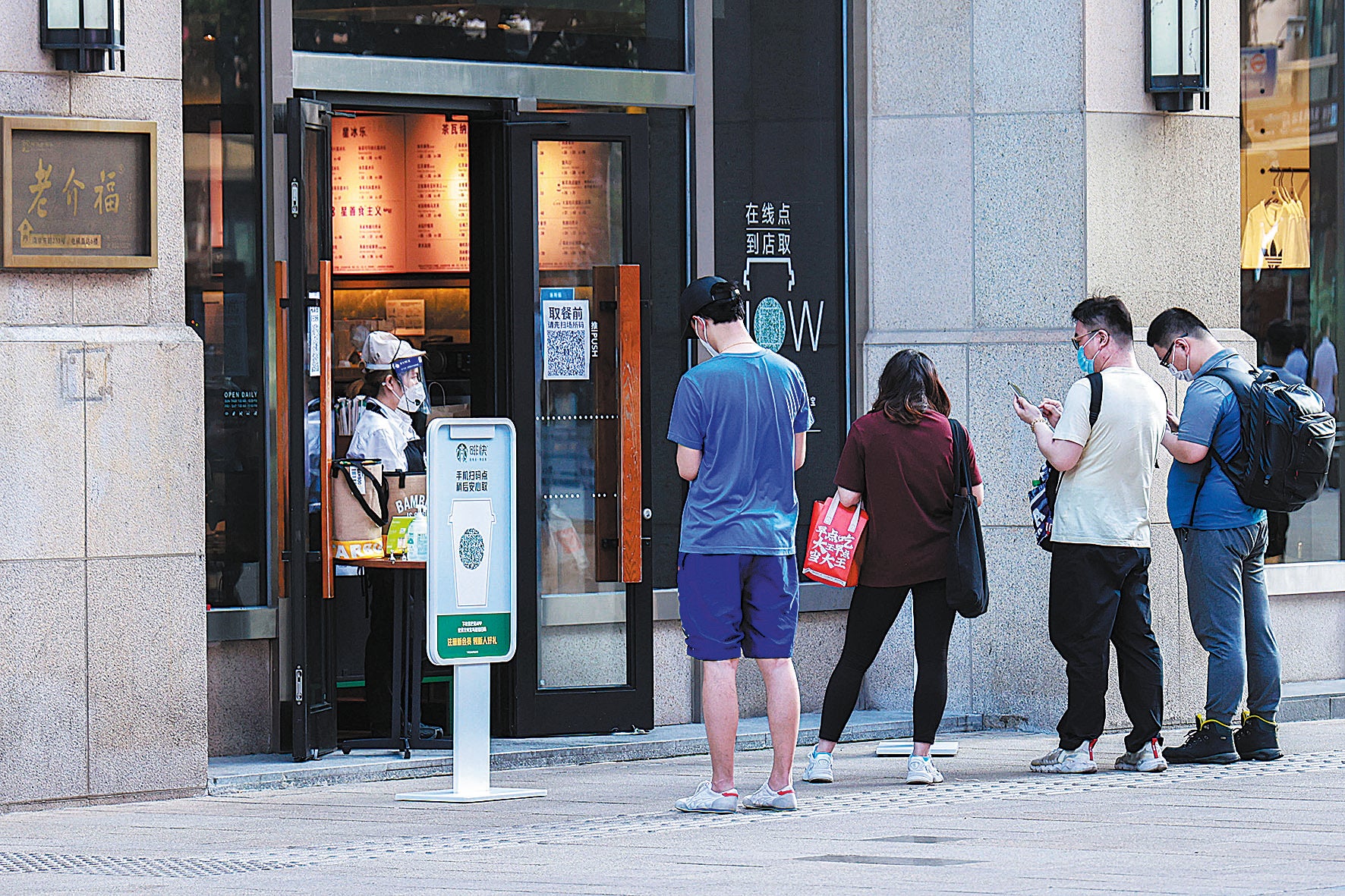Shanghai quenches its thirst for coffee again
THE ARTICLES ON THESE PAGES ARE PRODUCED BY CHINA DAILY, WHICH TAKES SOLE RESPONSIBILITY FOR THE CONTENTS

When sales of fresh coffee resumed at Buna & Pate, a coffee shop in the Xuhui district of Shanghai, on June 2 customers flocked to the business.
Amid the aroma of fresh coffee beans, Xu Yihong, the shop’s manager, said, “It means a lot to me that we are able to provide service to many regular customers and coffee lovers once again.”
The independent business, established in December 2021, reopened on June 1, 2022, after being shut down for more than two months.
Su Xinyi, co-founder of Aloha, a specialty coffee shop in South Shaanxi Road, said numerous customers voiced relief at being able to drink on the premises again after the lockdown was lifted.
“Drinking coffee is a way of life in this city,” Su said. “Being able to enjoy a cup of fresh coffee gives people a sense of normality during these special times.”
During the lockdown coffee was in high demand in Shanghai, which has about 8,000 cafés.
A report by China Central Television’s business channel said the city has the most cafés in the world.
Yeast in Yanqing Road in Xuhui district, came to the rescue of numerous coffee aficionados in the city, being one of the few coffee shops open for delivery services during the lockdown.
The business reopened on April 9, just eight days after Puxi, an area of Shanghai, was placed under close-loop management.

The small shop needed to survive, facing a heavy burden from paying rent and wages.
He Shanze, who owns the business, moved from home with her husband to live in the shop, starting an online business during the lockdown.
Taking their stocks of raw materials and staffing into account, the couple decided to sell only snacks and three types of coffee – latte, Americano and cold brew – at the usual price. They initially told neighbours and regular customers living nearby that the business was reopening.
Much to He’s surprise, 157 online orders were received on the first day. The shop previously sold about 150 cups of coffee on weekdays and 200 cups during weekends. A customer living about 6 miles from the business ordered 16 bottles of coffee one day in May.
“I felt so happy at the time,” He said. “I didn’t expect the demand for coffee to be so high and that people would be so supportive.”
Some café owners found new ways to survive as more residents made fresh coffee at home by ordering coffee beans. Selling store-roasted beans instead of drinks became a new retail strategy for storekeepers.
Xu, the manager of Buna & Pate, said: “During the lockdown, we received orders for coffee beans every day from customers, with each one worth 100 to 200 yuan [£12.50 to £25] During the outbreak, we generated more revenue from coffee beans than from selling coffee.”
To help customers during the outbreak, Xu roasted beans and delivered them to customers. She also taught customers how to make quality coffee at home.
Enthusiasm among customers and a rent exemption from the local government have eased pressure on the store to a certain extent and given her confidence for the future, Xu said.
At the end of May the Shanghai authorities announced a 50-point action plan to fully assist companies to recover from the challenges posed by Covid-19 in recent months.
Under the plan, businesses in the catering, retail, tourism, civil aviation and transportation sectors, and small-, medium- and micro-sized companies, are entitled to postpone paying social insurance premiums and housing provident fund contributions to the end of this year, as well as benefiting from other exemptions and reductions in taxes and fees.
Xu said: “A cup of coffee involves a lot of people, from farmers in producing regions, to processing workers, transportation operators, equipment manufacturers, and baristas in cafés. I hope everyone can survive.”
Xing Yi contributed to this story.
Previously published on Chinadaily.com.cn
